
Don’t forget to read the other ridiculously long lists in this series:
101 Ways to Create a Powerful Web Presence
123 Questions Every Marketer Must Ask
And now, for today’s ridiculously long list:
101 Lessons Learned in 2007
1. Art doesn’t come from you. It comes through you.
2. ASK YOURSELF: Are customers asking for products and services you DON’T have? What does that tell you? And what are you doing about that?
3. BE HONEST WITH YOURSELF: If you stopped advertising, would anybody even notice?
4. Be quick, but don’t hurry.
5. Cause people to learn it on their own.
6. Cherish your alone time.
7. Clone yourself through teaching others.
8. Compete only with yourself.
9. If you don’t set clear boundaries for yourself, people will set them for you. And then they will violate them. And, most likely, it will be YOUR fault.
10. Create consistent opportunities to demonstrate emotional reliability.
11. Create your own market.
12. Create your own personal security system.
13. Develop an unusual desire to excel.
14. Don’t create a piece of art. Contribute to an ongoing body of work.
15. Don’t “target market.” Reverse it. Concentrate on making yourself into a giant bull’s-eye. If you want to learn how use Reverse Target Marketing, send an email to [email protected] and I’ll tell ya!
16. Don’t set goals that are TOO ridiculous. You may end up adopting an unrealistic standard of evaluation for yourself.
17. Develop a relationship with your own mind.
18. Distrusting change = distrusting the universe.
19. Don’t be an expert; be a trusted advisor.
20. Don’t be satisfied with your first ideas.
21. Don’t count on your customers to connect the dots.
22. Don’t dilute your integrity with thoughtless commitments.
23. Don’t give away the (informational) farm. Offer exclusive content.
24. Dreams make decisions easy.
25. Every single day, your environment gives you small nudges.
26. Everything communicates something.
27. Everything you do should lead to something else you do.
28. Evidence of low trust is everywhere.
29. Figure out where others failed.
30. Get old; don’t think old.
31. The best salespeople don’t sell; they solve and help.
32. The best way to break the rules is to (not) know they ever existed.
33. Get over yourself.
34. Global is the new local.
35. He who talks next, loses. State your fee confidently and shut up.
36. Help people get beyond their misconceptions.
37. Help people see the beauty in things that are not pretty.
38. I’d rather say no than do a poor job.
39. If customers like you, they’ll find a way to buy from you. If customers don’t like you, they’ll find a way NOT to buy from you too.
40. If the first lie requires a second lie, don’t do it.
41. If they’re laughing, they’re listening.
42. Improvisation takes years of practice.
43. It’s OK (not) to shoot all your bullets.
44. Just because you can doesn’t mean you should.
45. Keep your material fresh.
46. Know what you DON’T know.
47. Learn to thrive in many environments.
48. Look for every possibly opportunity to reduce uncertainty.
49. Love the work more than what it produces.
50. Make it easy for customers to complain.
51. Make the choice to make choices.
52. Mission is higher purpose; vision is long-term aspiration.
53. Most people do not know what you do.
54. Most people do not know who you are.
55. Never let anyone make you second-guess yourself.
56. Nobody can stop you from learning.
57. Nobody can take away what you’ve become.
58. Not risking is the ultimate risk.
59. People don’t care what you sell, the only care what you can change.
60. People respond to simple.
61. People take their cues from you.
62. People want the HOW.
63. Perpetually hunt for insight.
64. Prove to people that you’re not going away.
65. Put yourself into situations where you have neither mastery nor control.
66. Questions are investments in human capital.
67. Questions are the basis of all cooperation.
68. Questions are the basis of all creativity.
69. Recognize threats to your ownership.
70. Refuse to check your personality at the door.
71. Refuse to define yourself by others’ assessments.
72. Register every possible permutation of your website URL.
73. Rehearse the future.
74. Risk today’s time for tomorrow’s benefit.
75. See things incorrectly.
76. Shtick gets you in the door, but only substance keeps you in the room.
77. Small business isn’t a category; it’s a lifestyle.
78. Speak up at the slightest sense of discomfort.
79. Stay over yourself. (See #33 for how to do this.)
80. Stop cursing the darkness. Strike a damn match and make something happen.
81. Stories aren’t just remembered; they’re retold.
82. Study people’s minds.
83. Take a laugh break.
84. The best way to drive your competition crazy is to just be really, really successful.
85. The farther your ideas go, the more your business will grow.
86. The listener controls.
87. The more you notice, the more you can do.
88. The only thing worse than somebody stealing your idea is NOBODY wanting to steal you idea.
89. The theater of the mind is sometimes better.
90. The two ways to become more successful: become BETTER at doing what you do; and/or start doing MORE of what you do.
91. Transparency quickly strips people of their defenses.
92. Walk more than you talk.
93. We live in an “It’s Not My Fault Culture.” So, stop evading responsibility. You always have a choice.
94. When? Now! Who? You!
95. Writing is subconscious absorption.
96. You grow bigger ears by biting your tongue.
97. You will never have all the facts.
98. You won’t know when your client has stopped trusting you.
99. Your greatness will (eventually) shine.
100. Your mind works for you.
101. Your primary task is to diffuse defensiveness.
LET ME ASK YA THIS…
What were your Top Ten Lessons Learned from 2007?
LET ME SUGGEST THIS…
Post your list here!
* * * *
Scott Ginsberg
That Guy with the Nametag
 Life Coaches? Bah.
Life Coaches? Bah.
No systems. No formulas. Just someone who listens, asks KILLER questions and facilitates creative breakthroughs.
Rent Scott’s Brain today!

 Every have a bunch of random thoughts you need to get out of your brain and onto the page?
Every have a bunch of random thoughts you need to get out of your brain and onto the page? Coaching, schmoaching.
Coaching, schmoaching. Are you a Wordsmith?
Are you a Wordsmith? Enjoy this post?
Enjoy this post?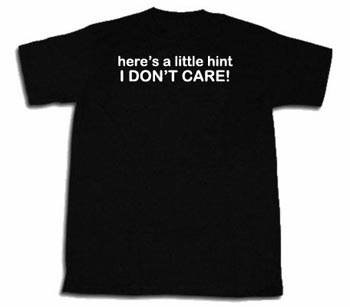
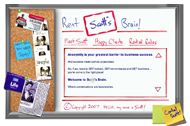 Enjoy this post?
Enjoy this post? I just think stuff like this is interesting.
I just think stuff like this is interesting. Enjoy this post?
Enjoy this post? It’s never too early to begin
It’s never too early to begin Enjoy this post?
Enjoy this post? The only thing cooler than learning is UN-learning.
The only thing cooler than learning is UN-learning. Enjoy this post?
Enjoy this post? I speak at a lot of conferences.
I speak at a lot of conferences.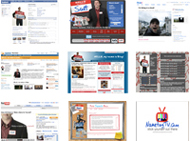 Are you a friend of
Are you a friend of  I was strolling down the Reno strip this week when I noticed an interesting pattern.
I was strolling down the Reno strip this week when I noticed an interesting pattern.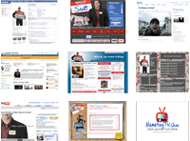 Are you a friend of
Are you a friend of  Looking for a GREAT way to start a conversation with a stranger?
Looking for a GREAT way to start a conversation with a stranger?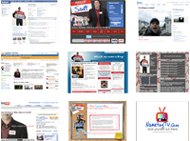 Are you a friend of
Are you a friend of